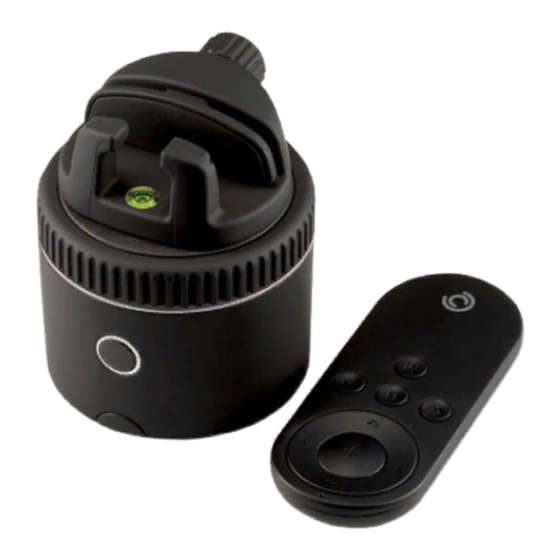
Advertisement
Advertisement
Table of Contents

Summary of Contents for Lab-T PIVO-RC-1
- Page 1 User Manual Copyright ⓒ 2020. Lab-T, Inc.
- Page 2 Remote Quick Start Guide...
- Page 3 General Information Product name : Pivo remote control. Model name : PIVO-RC-1 Material : ABS, Rubber, Plastic Controller : 2.4GHz, RF Height: 8.8 cm / 2.7 inches Width: 3.65 cm / 1.4 inches Weight: 30g / 1.0 ounces Battery 3V Coin Button Cell Made in China Company name : 3i Inc.
- Page 4 Remote Overview For convenience, the Pivo Remote comes paired with your Pivo and is ready to use. • Up to 15 meter operating range. • Can be paired to multiple Pivo Pods. • Comes with 1 replacement 3V battery (coin type). •...
- Page 5 Remote control operation With your remote, you have control over various core settings of your Pivo including, rotation speed, rotation direction, shooting mode, shutter button, and more. Capture photo/start recording Increase speed Rotate clockwise Decrease speed Rotate counter-clockwise Rotate clockwise 1 round Rotate counter-clockwise 1 round Stop rotating/ Cancel shooting (may vary depending on the capture mode) Toggle between photo/video mode (may vary depending on capture mode)
- Page 6 Pairing Remote Control and Pivo If your Pivo Remote becomes disconnected or if you’ve replaced the Pivo’s remote control batteries: “+” button Power button 2. Press and hold the “+” button on the 1. IniciatePress the Pivo power button 3 times on quick succession. remote control until you hear 3 quick The Power Button’s LED lighting will beeps.
- Page 7 RF Specification -Frequency : 2440 MHz -Modulation: GFSK Compliance Statement This device complies with part 15 of the FCC Rules. Operation is subject to the following two conditions : (1) This device may not cause harmful interference, and (2) This device must accept any interference received, including interference that may cause undesired operation.



Need help?
Do you have a question about the PIVO-RC-1 and is the answer not in the manual?
Questions and answers